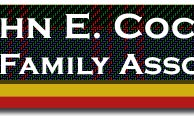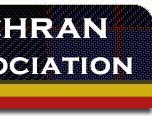MEMORIES OF LIFE
By James Robert Cochran
My earliest remembrance was going down the hill from Colton to Lewiston. Mother was driving the hack and having trouble holding me so she sat me on the floor between her feet. It is possible I don't remember that, but I've heard it so many times that it seems like I do. In fact, several things that happened on that trip are like that. They told me I was six months old. I remember little instances that happened while we were living at Whitebird and one trip when we left Doumecq and went back to Whitebird. I also remember starting to school and Fanny Shinn and I were let out at recess a few minutes before the rest of the school. The school was the old schoolhouse which was about half a mile up the road from the present building. A wood pecker would come and peck on the building until the teacher would send some one out to chase it off. Then one year, the school house got on fire a few times. Once we thought it was gone and carried everything out. It always started on the roof where the stove pipe went out. I don't remember who the teacher was, but I don't think it was Ethel.
There was always a picnic on the Fourth of July. One year at the Barker grove there was a parade from the old school house. Gene Maxey made seats along each side of a hay rack and some of the girls rode on it. He got four white horses to pull it. Can't remember where he got them all. One of ours, old Tom, and one was from Alex Shinn. Maybe he had some too. There were other rigs in the parade, no doubt. Ray with his buggy and quite a few of us on saddle horses with our bridles all decorated with flags and ribbons were also in the parage. Too bad there are no pictures of that parade and picnic. There was always lots of ice cream. It was home made and was all hand cranked. The ice had been cut from Weller's pond and stored in an ice house at our place. Everyone helped cut the ice and everyone used it with no restrictions. Later a picnic ground was cleared about half way between where the old school house stood and the new one.
Much of our school was three months in the fall and three months in the spring. I started school with Kate Cummings. The fall I was in the 8th grade, she was my teacher for three months. Then I went to Jack Pine school with Boots and Fanny Shinn to Mamie Fogg until our school started the next spring. Then Boots, Fanny, and I graduated with Marion Daubenspecky as teacher.
I did not attend my graduation. Andy "The Packer" was carrying the mail, but was inclined to over indulge once in a while, but his horses knew where to go. The day of graduation, the last day of school, Andy was so drunk that Father drove the team back up to the barn, rolled Andy out in the hay. Guy Twogood and I took the mail on to Joseph and Boles and came back the next day. Andy was recovered and was very ashamed. He assured Mother it would never happen again if she wouldn't report him. I think that it was the only time it did happen. Several times, though, he had been drinking but not to excess.
We started building the new house in 1914. The woodshed and smokehouse were fixed up to live in while the house was being built. Father traded Mr. Lacy a horse, Bonnie, to do most of the carpenter work. Mr. Lacy had a homestead near the mouth of the Wells canyon on Rice Creek. Bonnie was a well known and favorite saddle mare. She was the first horse I ever broke to ride and she bucked me off. I led her up to where Father was plowing and wanted him to ride her. I thought he could do anything, but he would not get on her. While we were discussing it Johnnie Maxey came and talked me into getting on her there in the plowed field. He assured me that it wouldn't hurt if she threw me off in the soft ground. I got back on, but she never bucked again.
That fall, much against my desire, I went to Walla Walla to attend high school. I worked for my room and board on a small farm two miles out of town. Harry Reynolds had an apple orchard and some farm land. My job was mostly milking two or three cows and taking care of them and the milk. I was treated like one of the family. On Saturday mornings I worked at whatever had to be done, but after noon I was free. If they had work for me I was paid to do it. They had two beautiful young horses. One was broke to ride and I broke the other while there. One of the girls liked to ride, but was not allowed to ride unless someone went with her. I was often called on to ride with her. Quite often that was part of my Saturday morning job. The first year I was there, I was sure I would never see home again. It was the first time I had ever been away from home. I went to High school for the next three years, then out the fall semester and back for the second semester. I guess it was to gather cattle, but don't remember for sure. We were running them in the Camp Howard country, and I always did most of the riding.
In the fall of 1917 we moved our livestock from Doumecq to Horse Heaven and I missed the first semester riding after stock. We drove all stock to Lewiston and then shipped the cattle--two or three carloads. Ross Zehner and I drove the horses. We had an old wagon to haul our camping equipment, but not much of a cover to keep it dry. The last week of the trip I think it rained every day. Father had gone with the cattle. We had very little trouble. We put our horses in a corral at Walla Walla. When we were ready to leave our dog was gone. That night, after we made camp, the dog arrived dragging a good 30 foot braided rawhide lariat. Someone had tied him up, but he got loose.
I graduated from high school in 1919 and that fall went to W.S.C. That was when the flu epidemic was so bad, and about February 1920 I got it. The hospital at that time was very small, maybe 4 beds. There were so many of us who were sick that beds were set up any place that was available. I was in the dorm for two weeks, then beds were set up in one of the churches. There were 25 or 30 of us in there for about two weeks. One morning I was told that I was to go to the hospital. There was a vacant room because the patient who was it had died. When I got there, I was advised to go home. I had lost six weeks of school and knew I never could catch up anyway. I was home for a while, then went to Waitsburg to work for Cliff Minnick on a wheat ranch. I worked there during harvest before. I never did get back to college.
I had eight head of horses and got a job in the spring plowing and in harvest on a header box or combine. Sid and I would haul wheat after harvest. One year we hauled wheat all season (40 days) and did not do any harvest. That year we hauled to Eureka, Prescott, Starbuck, and Dayton. Most of the time we picked up back of combines. The sacks weighted 138 to 146 pounds each. When we finished our last job, Sid said, "If there is another wheat hauling job, count me out. I've had enough." He was a good worker and we worked good together. I always lined up the job. One fall I hauled alone into Starbuck with eight horses and two wagons, 100 sacks at a trip, two trips a day. This wheat had been banked and piled, so I just pulled up to the pile and loaded, but I had to load them alone.
About 1922 or 1923 I plowed for Fred McCaw at Prescott. After we finished, he made me an offer to buy my eight horses, harnesses, plow, and wagon, if I would wait until harvest for my money. He had always been all right and had a good reputation so I took his note. A week before harvest he took bankruptcy and I got nothing. That ended my team work for a while.
The fall of 1923 I traded for the ferry boat known sometimes as the "Hover Ferry." The "Hover-Attalila Ferry" was there five or six years, but after both bridges were done not many people were going to ride the ferry. We had acquired the Hover store and post office shortly before we left the ferry, but didn't keep it very long, maybe a year. In the ferry boat deal we got 120 acres of land out on the mountain from Dayton. We decided to go there for the summer and break and get rid of some horses. I had made an offer on 23 head of horses for $300 and had gotten them. Most of the horses were unbroken, four or five had been used. We spent the summer up there camping. Came back to Hover that fall and still had quite a few horses, but they were broke. That winter the Bridge Company at Kennewick bought the ferry and I worked for them the next spring and summer. The Kennewick Bridge was being repaired and the ferry was used there.
After they closed the boat down, we moved to Walla Walla and had a service station. It didn't do very good, so we traded it for a lease on a ranch at Pomeroy. We really liked it there, but after 5 years we lost the lease on the place. The landlord's son-in-law wanted it and we couldn't find a place around there that we could get. We ended up on a place 10 or 15 miles out of Northport. It was not a bad place to live, but a hard way to make a living. I tried it until I used up all my assets, then went to Chewelah and worked in the Magnesite mine for a few years.
Left Chewelah and the mine and moved to Pullman about 1945. I delivered gasoline and oils for the Richfield Oil Company in and around Pullman for about seven years, until June of 1952. I moved to my present location at Kelso at that time, and have been here ever since.
I could tell many happenings at each of the moves. Some of the experiences were funny, but others were not so funny, especially at that time. I look back now and wonder how we survived the 30 degree below zero weather, four feet of snow, out every day, or 120 degree weather in the shade and no shade. There was always work to be done.
James Robert Cochran, October 21, 1898 - February 24, 1998
Reprinted from Cochran Chronicles, Volume 7, Number 1, November 19, 1984
© JECFA 1984
Up







